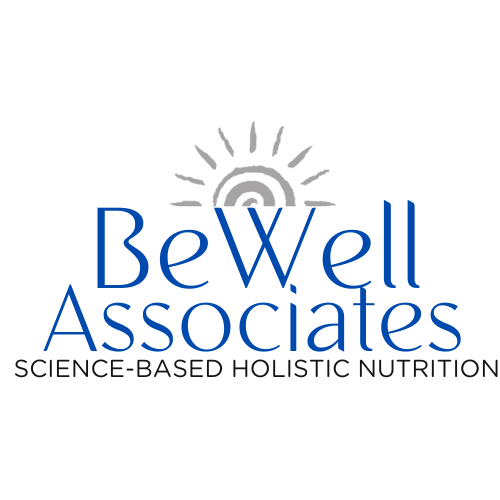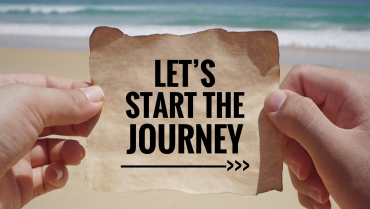Start Bone Care Early
Building and maintaining healthy bone structure begins early in life. Bone building is complete in young women by the age of 17 and peak bone density occurs by the age of 25. Genetics accounts for only 30% of the risk of developing osteoporosis. So you see, keeping bones strong and healthy is a result of daily lifestyle choices we make along the way from the time we are in our early teens.
Threat to Your Bones
Now that we’re all spending time outdoors, maintaining healthy bones is an absolute prerequisite for enjoying that and, really, every facet of life. Yet, according to the National Osteoporosis Foundation, 1 in 2 women older than 50 will suffer a broken bone due to osteoporosis. For men, that number is 1 in 4.
Osteoporosis is the disease of bone loss, and often there’s no sign of it at all until a bone snaps. Sometimes it presents as a severe backache, which people tend to treat with over-the-counter painkillers. Most often when someone “falls and breaks a bone,” it’s actually the other way around. They experience a fracture and fall as a result, then discovering that they have osteoporosis.
Vitamins and Minerals for Bone Health
There are many factors that influence bone health. The most important ones include optimizing:
- calcium
- magnesium
- boron
- vitamin D
- vitamin K
- ideal hormonal levels (especially as we age)
- daily exercise
- informed dietary choices
Although calcium is an important part of bone building, it’s not the only mineral that is at play. Magnesium can be as or even more important than calcium for some people. Magnesium helps build strong bone mineral crystals, which in studies have demonstrated that even with reduced bone mass, protect people from future fractures. Leafy green vegetables, nuts and seeds are excellent sources of most of these trace minerals.
Robust vitamin D levels are critical for maintaining healthy bone mass and are inversely proportional to bone fractures. Aim for a level that is between 55-75 ng/ml; don’t settle for barely more than 30. And have it checked annually. Those living in Central Pennsylvania can’t depend on the sun for vitamin D. And at least half the population has genetic polymorphisms that make it difficult for them to store this important vitamin-prohormone.
The Role of Calcium
Vitamin K is important because it helps pull calcium into the bone matrix and prevents it from depositing in the arteries. It prevents inappropriate calcium deposits by making sure the calcium goes where it’s supposed to, in bone, and not in the arterial walls.
There has been recent concern that excess calcium calcifies the arterial walls, so the recommendation for dietary calcium has been decreased to no more than 800 mg per day through supplements. Aiming for total daily calcium intake of 1200 mg/day, the rest of your calcium should be supplied by dietary sources.
Other trace minerals such as boron, zinc, strontium, manganese, and silicon are also needed to build strong bones.
Check out Osteoben from Designs For Health. Or call our office to order OsteoForce.
pH Is Key
Diets that are high in animal protein or other acid-forming foods like sugar and soda can also increase bone loss. Acid-forming foods can reduce systemic pH, causing the body to draw minerals from bone, if they aren’t available through the diet, in order to regulate the pH of the blood. Specifically, calcium and magnesium concentration is tightly controlled in the blood because they regulate the heartbeat. Therefore, the body will always prioritize having adequate levels of these minerals and will sacrifice bone density to do so. It is for this reason that evaluating calcium and magnesium through conventional blood testing is not necessarily accurate. The best way to assess your body’s storage of these minerals is through measuring them in red blood cells so make sure that’s what the test is measuring.
Managing pH through diet can go a long way toward preserving bone. You can use strips of inexpensive pH paper to check your urine and saliva and make dietary changes to keep your pH in an appropriate range. Most people feel much better overall when their pH is closer to neutral (ideal for urine is 6.4; for saliva it’s 7.2).
Some examples of alkalinizing foods are lentils, yams/sweet potatoes, limes, raspberries, onions, salt, mineral water, broccoli, and most fruits and vegetables. Set up an appointment with us and learn about the supplements we offer that can help.
Hormone Balance for Bones
In post-menopausal women, hormonal status also affects the ability to assimilate bone. At the very least, DHEA should be measured and possibly supplemented to maintain the ability to build bone, protect the brain and improve skin tone. If there’s a long history of steroid use, then both calcium and DHEA should most definitely be part of an ongoing program to protect bone health.
Bone Loss Culprits
Certain other drugs besides steroids also affect bone building. These are the PPIs and H2 blockers, used for managing acid reflux, heartburn, and the like. These meds should only be used for short term until the underlying cause of symptoms can be addressed. Used long term, they reduce stomach acid, thereby preventing the absorption of key bone-building minerals. Chronic low stomach acid (the underlying cause of many of the above-mentioned symptoms) has the same effect and needs to be corrected not just to improve digestion but also to protect future bone mass.
As for dietary causes of reduced bone mass, the list is not a surprising one. Sugar, especially in the form of soft drinks, is loaded with bone dissolving phosphates and depletes bone mass. Smoking and excess alcohol consumption (more than 7 ounces per day) are also associated with reduced bone mass.
The Importance of Weight-Bearing Exercise
And finally, let’s circle back to exercise. Partaking in weight-bearing exercise every day is one of your best strategies to maintaining healthy bone. This can range from strength training with bar bells to using resistance bands at home to practicing Tai chi or yoga, all of which create resistance and stimulate bone repair. Immobility, which includes excess sitting and no exercise, doubles the rate of urinary and fecal calcium excretion causing a negative calcium balance.
There’s no magic to maintaining strong bones. Consistent exercise and a healthy diet remain the most effective practice for strengthening bones. When you feel strong and healthy, being outdoors is a joy, which then comes full circle to support a sense of health and well-being.





Add Comment